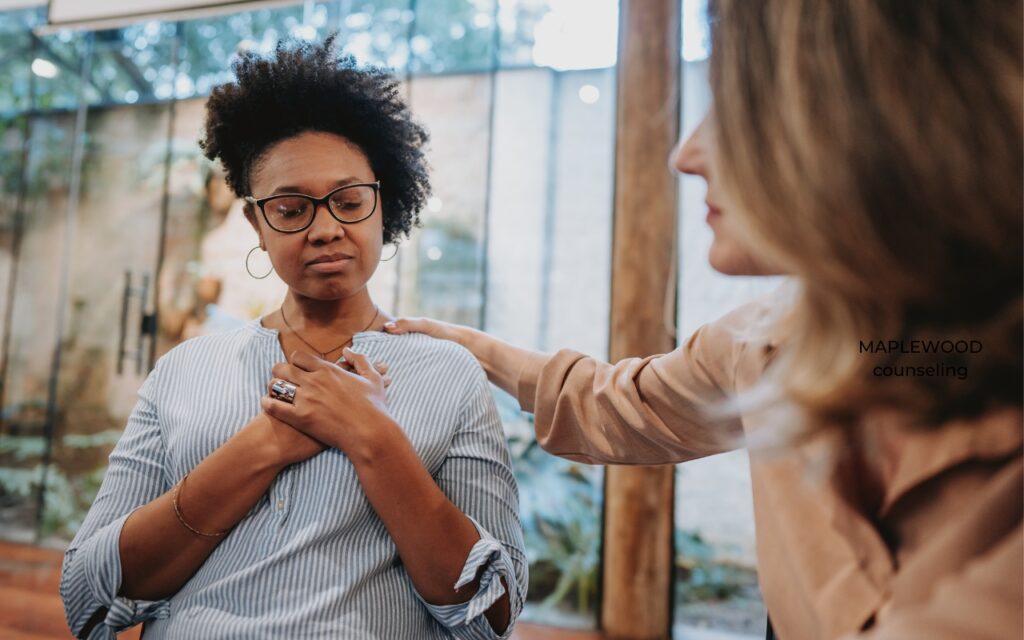
How Discipline Differences Bewteen Parents Causes Fights
Arguments About How to Discipline Your Kids?
8 Common Parenting Battles Resolved
Navigating Discipline: 8 Common Parenting Battles Resolved
Imagine a Peaceful Family Dinner…
Imagine a peaceful family dinner, the kind you see in commercials, where everyone is laughing, sharing stories, and enjoying each other’s company. Then, suddenly, a small disagreement over the TV volume between two parents turns into a full-blown argument about the best way to discipline your child. Sound familiar? You’re not alone. Welcome to the world of parenting, where opinions on discipline are as diverse and passionate as the people who hold them.
In this post, we’ll explore the 8 most common arguments parents have over how to discipline, providing valuable insights, practical solutions, and a positive way forward. So let’s navigate this challenging but rewarding aspect of parenting together.
Setting the Stage for Common Discipline Disagreements
Parenting is no easy feat, and when it comes to discipline, even the most harmonious couples can find themselves at odds. The way we choose to guide our children often reflects our core values, cultural backgrounds, and personal experiences. With so much at stake, it’s no wonder that disagreements arise.
Why Do These Disagreements Happen?
Disagreements about discipline can stem from a variety of sources. One parent might favor a more traditional approach, while the other leans towards modern, positive discipline techniques. Sometimes, conflicting advice from family members or parenting books adds to the confusion. The emotional investment in wanting to do what’s best for the child can make these arguments particularly heated.
The Importance of Addressing These Issues
Addressing these disagreements is crucial for maintaining a united front. Consistent discipline helps children understand boundaries and expectations, which is essential for their development. When parents argue about discipline, it can create confusion and insecurity for the child. Therefore, finding common ground benefits everyone involved.
The 8 Common Parenting Arguments Over Discipline
Let’s break down the eight most common arguments parents face when it comes to disciplining their children. Alongside each, we’ll explore potential solutions and expert opinions to help you find a balanced approach.
1. Positive Reinforcement vs. Punishment
One of the biggest debates in parenting circles is whether to use positive reinforcement or traditional punishment. Positive reinforcement focuses on rewarding good behavior, while punishment aims to discourage bad behavior.
Reasoning: Advocates of positive reinforcement believe it builds self-esteem and encourages repeat good behavior. Those in favor of punishment argue it sets clear consequences for actions.
Solutions: A blend of both can be effective. Reward positive actions while setting clear, fair consequences for negative behavior. Experts suggest using positive reinforcement more frequently, reserving punishment for serious infractions.
2. Time-Outs vs. Time-Ins
Time-outs involve isolating the child to think about their behavior, while time-ins involve staying with the child to discuss their actions and feelings.
Reasoning: Some parents feel time-outs help children calm down and reflect. Others believe time-ins foster communication and emotional understanding.
Solutions: Consider the child’s temperament. Time-outs can be useful for children who need space to cool down, while time-ins work well for those who benefit from guided reflection. Mixing both methods can cater to different situations.
3. Strict Rules vs. Flexible Guidelines
Should household rules be rigid and non-negotiable, or should there be room for flexibility based on circumstances?
Reasoning: Strict rules provide clear boundaries and expectations, which some parents believe are crucial for discipline. Others think flexibility teaches children adaptability and problem-solving.
Solutions: Set non-negotiable rules for critical issues (like safety) but allow flexibility in less crucial areas. This approach helps children understand the importance of certain rules while feeling respected in decision-making.
4. Immediate Consequences vs. Delayed Consequences
Should consequences for actions be immediate, or can they be delayed to a more appropriate time?
Reasoning: Immediate consequences help children connect their behavior with the outcome. Delayed consequences give parents time to consider the best response.
Solutions: For younger children, immediate consequences are often more effective. Older children or teens may benefit from delayed consequences that allow for thoughtful discussion and understanding.
5. Spanking vs. Non-Physical Discipline
This is arguably the most controversial topic. Should physical punishment like spanking be used, or should all discipline be non-physical?
Reasoning: Supporters of spanking argue it’s an effective, immediate deterrent. Critics say it promotes violence and fear, not respect.
Solutions: Current research overwhelmingly supports non-physical discipline methods. Techniques like time-outs, loss of privileges, and natural consequences are recommended by child development experts.
6. Consistency vs. Adaptability
Should parents always stick to the same discipline methods, or adapt them based on the situation and child’s development?
Reasoning: Consistency helps children understand and predict outcomes, fostering a sense of security. Adaptability allows parents to tailor discipline to the child’s changing needs.
Solutions: Maintain consistent core principles but adapt strategies as the child grows. This ensures a stable environment while meeting developmental needs.
7. Parent-Led vs. Child-Led Discipline
Who should have more say in disciplinary decisions—the parents or the children?
Reasoning: Parent-led discipline ensures control and authority. Child-led discipline encourages autonomy and critical thinking.
Solutions: A balanced approach works best. Parents should guide and enforce rules, while giving children a voice in less critical areas. This fosters responsibility and mutual respect.
8. Public vs. Private Discipline
Should discipline be administered publicly or privately?
Reasoning: Public discipline can be immediate and situational but may embarrass the child. Private discipline respects the child’s dignity but delays the consequence.
Solutions: Use private discipline whenever possible to protect the child’s self-esteem. If public correction is necessary, keep it brief and follow up privately.
Case Studies of Discipline Disagreements
Real-life examples can provide valuable insights into navigating these disagreements effectively. Here are a few case studies:
Case Study 1: The Single Mother and Her Partner
A single mother and her partner had differing views on discipline. The mother favored positive reinforcement, while the partner leaned towards traditional punishment.
Outcome: They created a unified discipline plan that combined both approaches. By discussing their values and seeking compromise, they found a method that worked for both of them and their child.
Case Study 2: The Blended Family
In a blended family, each parent brought their own children and disciplinary methods into the household.
Outcome: They held regular family meetings to discuss and agree on a consistent approach. This fostered a sense of unity and fairness, helping all the children feel equally valued.
Case Study 3: The Time-Out Disagreement
One parenting duo disagreed on the use of time-outs. One parent believed in their effectiveness, while the other preferred alternatives.
Outcome: They sought professional advice and learned about various discipline methods. Eventually, they agreed on a strategy that suited their child and aligned with both their values.
Impact on Children
Inconsistent discipline can have significant effects on children. It can lead to confusion, insecurity, and behavioral issues. Conversely, a united front provides clear expectations and a sense of stability.
The Benefits of Consistency
Consistency helps children understand boundaries. It fosters trust and respect, as children feel secure knowing what to expect.
The Dangers of Inconsistency
Inconsistent discipline can confuse children. They may struggle to understand what behavior is acceptable, leading to increased misbehavior and stress.
Maintaining a United Front
Parents must communicate openly and agree on core disciplinary principles. This unity helps children feel safe and understood.
Strategies for Resolution
Resolving discipline disagreements requires communication, compromise, and shared values. Here are some strategies:
Open Dialogue
Regular discussions about discipline can prevent misunderstandings. Share your perspectives and listen to your partner’s views.
Seek Professional Advice
Sometimes, an outside perspective can help. Child psychologists or family counselors can provide valuable insights and strategies.
Create a Unified Plan
Agree on core principles and methods. Having a written plan can serve as a reference and reduce conflicts.
Prioritize the Child’s Well-Being
Always consider the child’s best interests. Compromise when necessary to ensure a loving, supportive environment.
Conclusion
Navigating discipline disagreements is challenging but essential for effective parenting. By understanding common arguments and exploring solutions, parents can find common ground and create a supportive environment for their children.
Struggle with discipline issues and are not on the same page? Need to talk? Get in touch – we can help.
Raise Confident and Resilient Kids | 10 Helpful Parenting Tips












